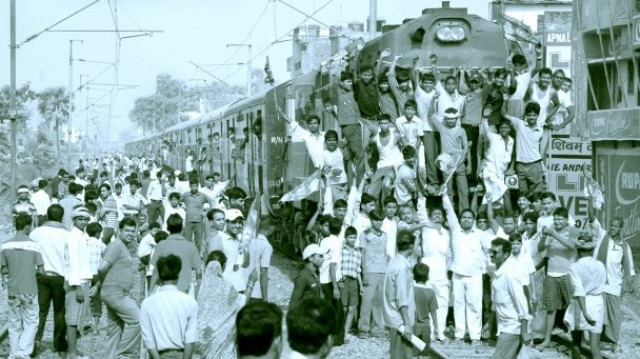Countrywide protests in India over price hikes

Anger over food prices – up nearly 20 per cent over 12 months – saw buses burnt in the northern city of Lucknow, protests in southern Hyderabad and a mass strike in the eastern communist-run city of Kolkata. In the capital New Delhi, members of the opposition parties behind the protests staged a sit-in on the steps of parliament with posters saying “Control Back-Breaking Price Rises.” “The agitation is a warning to the federal government.
The government must take all necessary steps to bring down the price of essential commodities,” All India Trade Union Congress (AITUC) leader Gurudas Das Gupta told AFP, a news wire agency. A no-confidence vote in the parliament on the issue of unpopular fuel price hikes, organised by the parties behind the protests, is expected to fail with the government seen as having sufficient support. “Let us see what happens... people are protesting outside and inside the parliament,” a senior leader from the opposition Hindu nationalist Bharatiya Janata Party, Venkaiah Naidu, told reporters when asked about the vote.
“This is a good occasion for us to test the government’s ability – there is a controversy surrounding the IPL, price rise, phone tapping. The government has to answer to all of this,” he said. In Kolkata, thousands of airport, rail and bank workers went on a dawn-to-dusk strike, while schools and shops shut and attendance in government offices was extremely low. Meanwhile, there were sporadic protests from Kerala in the south to Arunachal Pradesh in the far northeast, in which demonstrators demanded action on high food prices – now a major political issue in India. Food inflation stood at 17.65 per cent over 12 months in the second week of April.
A severe drought last year, when the monsoon rains were the weakest in 37 years, hit farmers hard across the country. This has led to reduced crop yields, forcing up prices. AFP



















COMMENTS
Comments are moderated and generally will be posted if they are on-topic and not abusive.
For more information, please see our Comments FAQ